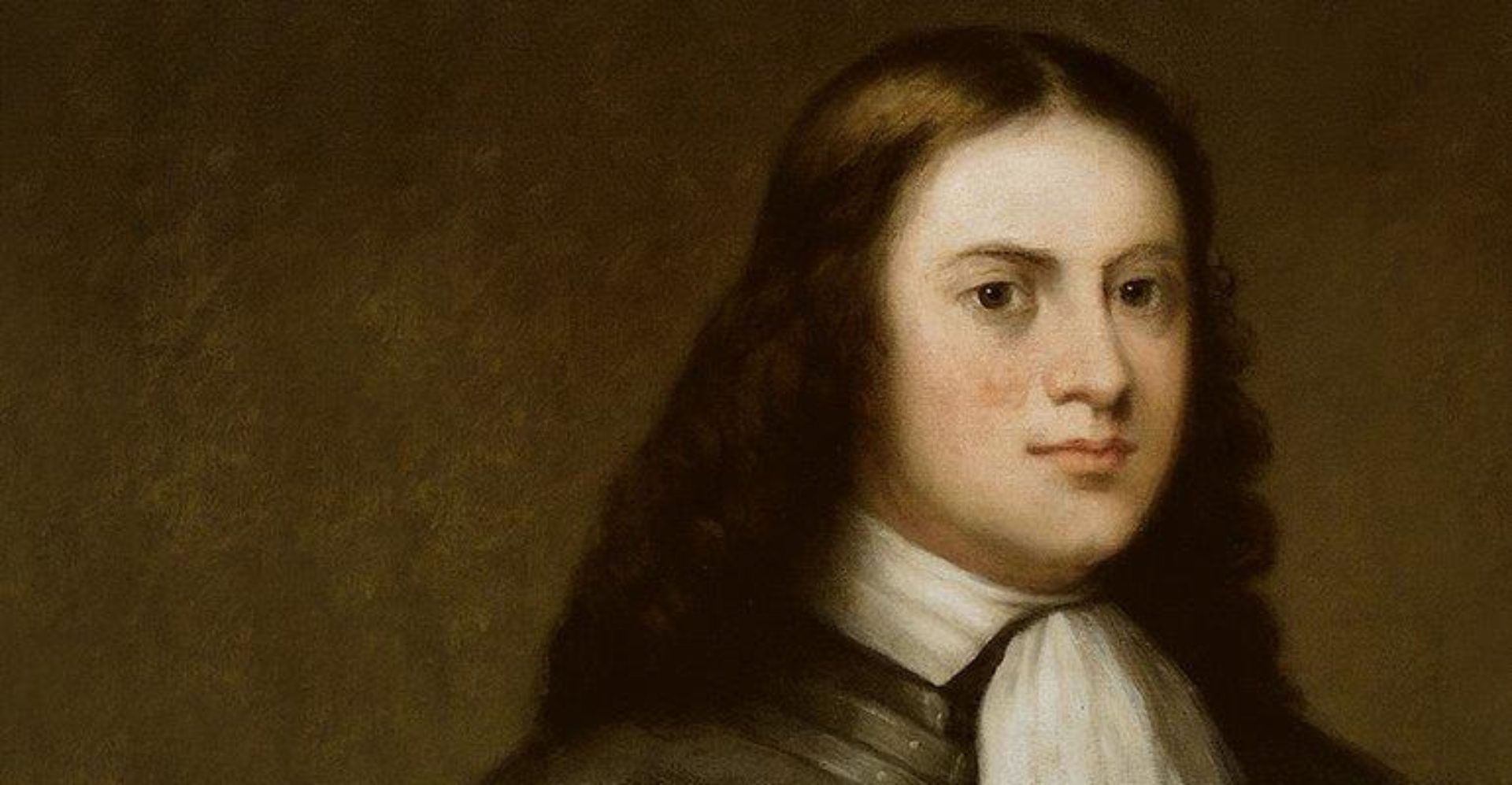

Artist unknown, William Penn in Armor, 19th c., The State Museum of Pennsylvania
William Penn’s study of the Bible led him to become a Quaker. The Society of Friends (Quakers) were a nonconforming sect that championed social ethics rooted in the biblical ideal of love. Penn became the Friends’ high-profile public advocate for the freedom to believe and practice faith without state restrictions and interference.
Penn’s ideals about religious liberty and the collective rights of freedom of speech, press, and assembly, landed him in jail on several occasions. Yet, his vision for a society of love and liberty prevailed and animated his reform efforts in England. Eventually Penn looked to America as the place to demonstrate his “holy experiment” in politics.
With his family’s wealth and favor of King Charles II, Penn obtained a land grant of 50,000 square miles. He named his capital “Philadelphia” from the Bible meaning “brotherly love.” Love was to be the compelling ethic and foundation binding people together in their common life. Penn conceived of Pennsylvania as a commonwealth, a society existing from and committed to the good of all.
In Penn’s view, the source of love was God. He frequently quoted St. John, “He that lives in Love lives in God.” People, he reasoned, needed the personal freedom to be convinced of this truth. Faith in God could not be coerced but must be understood and willfully embraced. Therefore, the fundament of Penn’s constitution for Pennsylvania, his Charter of Privileges, was religious liberty – the freedom to believe and practice one’s faith without disturbance. Penn believed that political liberty was predicated upon religious liberty. If all were free to believe, they might find love, the love of God that binds humanity together and seeks the mutual beneficence of one another. Liberty, for Penn, was instrumental to a just and prosperous society.